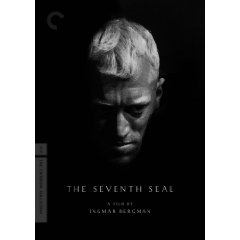
Starring: John Malkovich, Colin Hanks & Emily Blunt
Director: Sean McGinly
This is a very agreeable "feel good" movie and, as such, should find favor with a great many of those who view it. The story, which is in the tradition of other "behind the scenes with a difficult talent" films as My Favorite Year, concerns an aging mentalist -- do not call him a magician, please -- named Buck Howard (Malkovich), who was once at the top of the heap but is now reduced to playing to small, if appreciative, audiences far from the big time. His new road manager, Troy (Hanks), has joined Buck because he is floating aimlessly after dropping out of law school and is trying to "find himself." Working with Buck is an education in itself, as he has taken self-delusion to an extreme, is entirely self-involved, and more than a bit temperamental. But there's something about Buck that draws Troy in and ultimately teaches him a lesson about being true to himself.
Buck is a very audience-friendly film, provided that viewers are willing to let themselves be taken along for a fairly manipulative ride. Director-writer McGinly has created a well-crafted screenplay that hits all the right buttons in terms of eliciting the desired response. Where he has fallen down a bit is in not adding real depth to the story or keeping it as tightly focused as it might have been. Troy's dilemma is a bit too superficial, as is the setup with his disapproving father (well-played by the actor's real-life papa, Tom Hanks). The part of the plot which deals with Troy's dalliance with a young P.R. agent feels incomplete, perhaps because Blunt's dynamic, eye-catching performance makes the viewer want to learn more about her character and see more confrontations between the agent and Buck. However, neither of these flaws (nor McGinly's tendency to overwrite and overuse the narration) is fatal by any means and they're more than made up for by some wonderful comic moments and McGinly's trenchant yet amiable way of dissecting the whole concept of celebrity. Most importantly, Buck has Malkovich operating at the top of his not inconsiderable form. The actor clearly relishes this character, and it is a joy to watch him inhabit Buck's skin and bring him to beautiful life. Malkovich finds the humanity beneath the caricature without letting the caricature slip away; Buck's trademark "I love this town" is funny because it is simultaneously cheesy and heartfelt. As Troy, Hanks isn't able to hold his own against Malkovich -- or Blunt -- but he does the best he can as the "straight" man in the movie. The supporting cast, especially Steve Zahn's and Debra Monk's on-target "hayseeds," are aces. McGinly's direction is smooth, if a bit too concerned with getting its points across, and Tak Fujimoto's cinematography is both glossy and warm. (87 mins.)
My Rating: ***


























